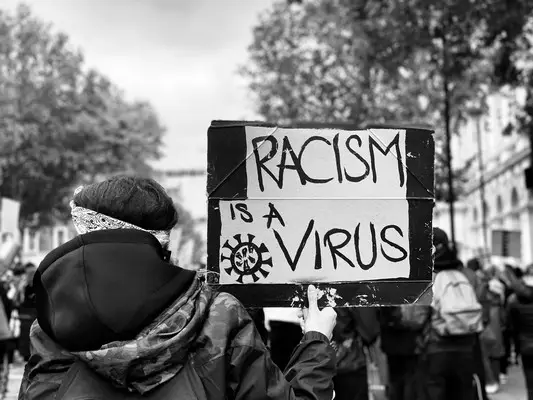Table of Contents
- Historical Context and Origins
- Defining Institutional Racism
- Impact on Various Sectors
- Addressing Institutional Racism
- Conclusion
Institutional racism, also known as systemic racism, refers to the policies and practices entrenched in established institutions that result in the differential access to goods, services, and opportunities of society by race. It is distinguished from the overt and individual acts of racism by its subtlety and pervasiveness, embedded in the operation of societal structures, laws, and policies. This form of racism maintains and exacerbates racial inequalities in a myriad of sectors including education, healthcare, criminal justice, and employment. Understanding institutional racism requires a comprehensive examination of its historical roots, mechanisms, and impacts, as well as a commitment to systemic change.
Historical Context and Origins
The roots of institutional racism can be traced back to colonialism and slavery, where systemic oppression of racial groups was legally sanctioned and culturally normalized. In the United States, the legacy of slavery, followed by the Jim Crow laws, established a foundation for systemic racial discrimination that persists today. Similarly, in other parts of the world, colonial powers imposed structures that marginalized indigenous populations and people of color, creating long-standing disparities.
During the Civil Rights Movement in the 1960s, the concept of institutional racism gained prominence. Activists and scholars highlighted that achieving racial equality required more than addressing individual prejudices; it necessitated dismantling the structural and institutional barriers that perpetuated racial disparities. This period marked a significant shift in the understanding of racism, recognizing the critical role of institutions in maintaining systemic inequality.
Defining Institutional Racism
Institutional racism can be defined as the discriminatory treatment, unfair policies and practices, and inequitable opportunities and impacts based on race within and between institutions. This form of racism is embedded in the policies, laws, and practices of societal institutions, often operating without explicit racist intent but resulting in discriminatory outcomes.
Mechanisms of Institutional Racism
Policies and Laws
Institutional racism is often codified in laws and policies that appear race-neutral but have disproportionately negative impacts on minority groups. For example, the implementation of stop-and-frisk policies in the United States has disproportionately targeted African American and Latino populations. Similarly, drug laws that impose harsher penalties for substances more commonly used by minority groups contribute to racial disparities in incarceration rates.
Resource Allocation
The unequal distribution of resources is a fundamental mechanism of institutional racism. Predominantly minority neighborhoods often receive less funding for schools, healthcare facilities, and public services compared to predominantly white neighborhoods. This disparity in resource allocation leads to substandard living conditions, limited access to quality education and healthcare, and poorer overall life outcomes for minority populations.
Hiring Practices
Discriminatory hiring practices within organizations contribute significantly to institutional racism. Implicit biases in recruitment, promotion, and retention processes often disadvantage racial minorities. For example, resumes with traditionally African American or Latino names are less likely to receive callbacks for job interviews compared to those with traditionally white names, even when qualifications are identical. This results in underrepresentation of minorities in higher-paying, managerial, and executive positions, perpetuating economic disparities.
Cultural Norms and Practices
Cultural norms and practices within institutions can also perpetuate institutional racism. This includes the underrepresentation of minority perspectives in media, education, and cultural institutions, which reinforces stereotypes and diminishes the visibility and value of minority contributions. Educational curricula that focus primarily on Eurocentric histories and achievements, while marginalizing the histories and contributions of other racial groups, further entrench cultural biases.
Impact on Various Sectors
Education
Institutional racism in education is evident in the disparities in school funding, disciplinary practices, and curriculum content. Schools in predominantly minority neighborhoods often receive less funding, resulting in overcrowded classrooms, outdated materials, and inadequate facilities. This lack of resources hinders the academic performance and future opportunities of minority students.
Disciplinary practices in schools also reflect institutional racism. Minority students, particularly African American and Latino boys, are more likely to be suspended or expelled for the same behaviors that result in lesser punishments for white students. These punitive measures contribute to the school-to-prison pipeline, where students are funneled from the educational system into the criminal justice system.
Additionally, the curriculum in many educational institutions is often Eurocentric, marginalizing the histories and contributions of non-white cultures. This lack of representation can negatively impact the self-esteem and academic engagement of minority students, further perpetuating educational disparities.
Criminal Justice System
The criminal justice system is a critical area where institutional racism manifests. Racial profiling, discriminatory sentencing, and unequal access to legal representation contribute to the disproportionately high incarceration rates among minority populations. For instance, African Americans are more likely to be stopped, searched, arrested, and convicted than their white counterparts, even for the same offenses.
Discriminatory sentencing laws, such as those that impose harsher penalties for crack cocaine (more commonly used in African American communities) compared to powder cocaine (more commonly used in white communities), exacerbate racial disparities in incarceration. Furthermore, minority defendants often face biased treatment from police, prosecutors, and judges, resulting in longer sentences and higher rates of wrongful convictions.
Healthcare
Healthcare disparities are a significant consequence of institutional racism. Minority populations often face barriers to accessing quality healthcare, including lack of insurance, geographic limitations, and discriminatory practices within healthcare institutions. These barriers contribute to poorer health outcomes and higher rates of chronic diseases among minority groups.
Cultural insensitivity and bias in medical research and treatment can lead to misdiagnosis, inadequate care, and mistrust of healthcare providers among minority patients. For example, African American women are more likely to die from childbirth-related complications compared to white women, partly due to disparities in the quality of care received. Addressing these disparities requires comprehensive reforms to ensure equitable access to healthcare and culturally competent care.
Employment
Get the full article AD FREE. Join now for full access to all premium articles.
View Plans & Subscribe Already a member? Log in.





